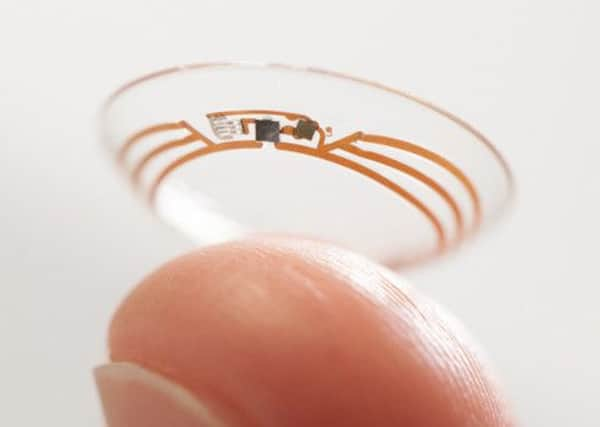Virtual reality trip ‘future of planning holidays’


At the announcement in London, the first of a three-part series of reports looking at what leisure travel will be like in 10 years time was discussed.
Skyscanner head of B2B, Filip Filipov, said: “This report focuses on three main trends that we believe, in the next 10 years will affect travel profoundly.”
Advertisement
Hide AdAdvertisement
Hide Ad“The first one is the Digital Travel Buddies. So people will be making use of the personal assistants that have already been released in a very specific travel way.
“The second thing that we believe is that virtual reality will be a way of window shopping. So this is an amazing way of demonstrating where people are headed on holiday.
“Virtual reality, for us, is very important for two reasons, because while we have grown to like travel, we love it as a generation, there are so many people who have never experienced this before, and this takes away that fear. This is how it’s going to be, this is what you will see.”
Virtual reality headset Oculus Rift already allows users to enter 3D virtual worlds, and as part of the demonstration a virtual tour of a Tuscan villa was shown.
“The second reason virtual reality is important is to do with translation - my parents don’t speak a foreign language, which means that every time they travel there is this fear that something might happen, but with things like Google Glass that problem goes away,” said Mr Filipov.
Personal assistant software like Siri on Apple’s iOS platform can already interact with users, while Google Glass has a live translation app available so menus and signs are translated for wearers.
“The third part is called semantic search. We believe hugely in semantic search. You don’t think naturally as two boxes; from box, to box and two dates. You think of ‘I would like to go and enjoy my holiday’ or ‘I would like to have an amazing city break’.
“This is the thinking process and we need to replicate that with the technology. We’ve tried to do certain things so far, for example we have search everywhere or search per month, but those technologies today with semantic search development allows us to connect what we have in terms of content, with the consumer.”
Advertisement
Hide AdAdvertisement
Hide AdSkyscanner say the semantic search aspect of the future will see users ask for a ‘city break’ and their computer will automatically present one based on data gathered from your habits, preferences and even mood.
The presentation in London detailed how existing technology and it’s continued advancement will lead to an entirely different way of searching for a holiday.
Products like the Oculus Rift virtual reality headset, recently acquired by Facebook, could be used to preview holiday destinations - walking around them before booking.
Facial recognition technology was also showcased, and how it can now be placed onto a contact lens and read moods, with a bendable circuit that can fit on a lens having been developed by the Swiss Federal Institute of Technology. Google have also began development of their own smart contact lenses.
The travel company believe this technology will be applied to personal assistants around the home, suggesting it will be able to recommend a holiday when it tracks your mood and posture changes.
Samsung UK president Andy Griffiths also recently suggested that he felt the technology trend would eventually move onto the idea of the smart home.
“There has been a huge change in the way the connected world is established, and so to take that forward 10 years it’s interesting to note that the main trend we believe by then will be the connected home,” he said.
Skyscanner CEO Gareth Williams described 2024 from a travel perspective as: “Travel search and booking will be as easy as buying a book from Amazon.”
Advertisement
Hide AdAdvertisement
Hide AdThe presentation follows a flurry of recent activity in the wearable technology sector, with Facebook purchasing virtual reality headset developer Oculus VR last month for two billion dollars. That deal came just a week after futurist and industry expert David Evans suggested that wearable technology will eventually become part of the human body; being implanted into us and then ultimately replacing or upgrading aspects of the human body.
“By sharing these thinking processes, and saying this is how we visualise the world in 2024, we can keep building technologies around this so that they match this vision,” said Mr Filipov, when asked why Skyscanner created the report.
He also explained why he believes that most of the products Skyscanner are looking at will be part of daily life in ten years time.
“As people begin to find more purpose for technologies, they start to become more mainstream,” he said. “So initially e-readers were for reading, then the iPad came so it was all about the touch screen experience and media. As companies we want to be part of this so we want to bring the travel part with those technologies and other companies will build let’s say healthcare or something else.
“That is when that technology will become mainstream; when we all chip in.”